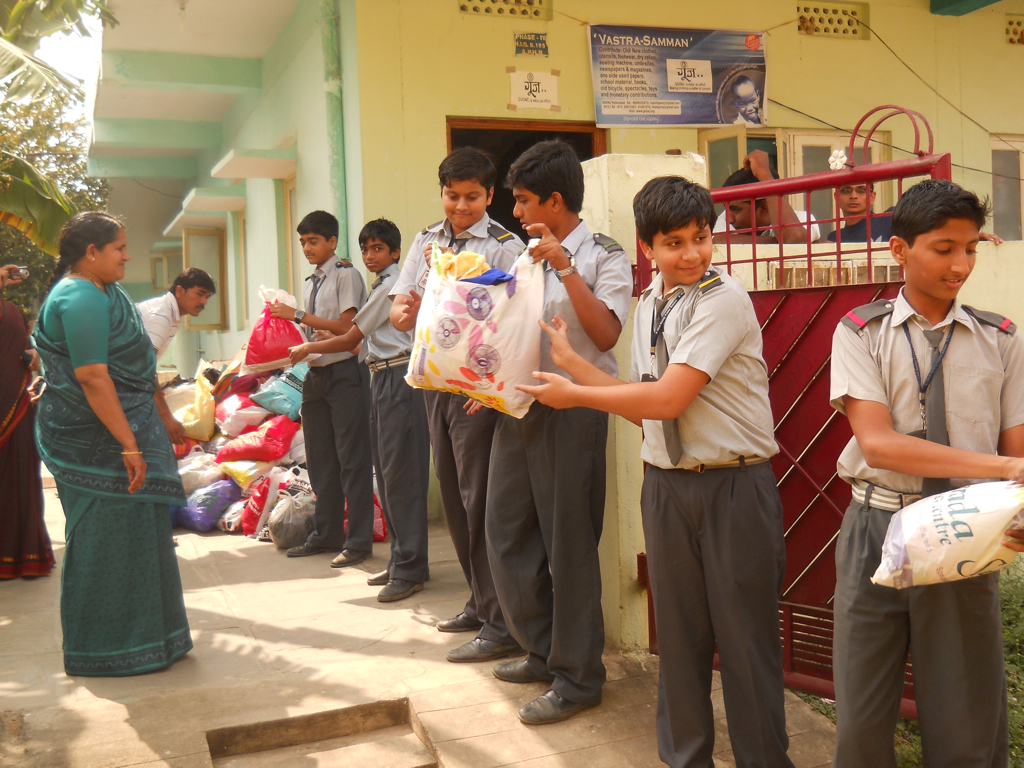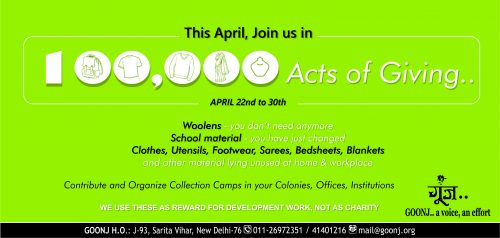TBI Blogs: How You Could Donate Your Kid’s Old School Materials & Teach Them to Be Responsible Too!
Involving urban school children in the process of helping their underprivileged counterparts can lead to some truly amazing experiences. Goonj’s School to School initiative is helping drive such instances of social responsibility and development.
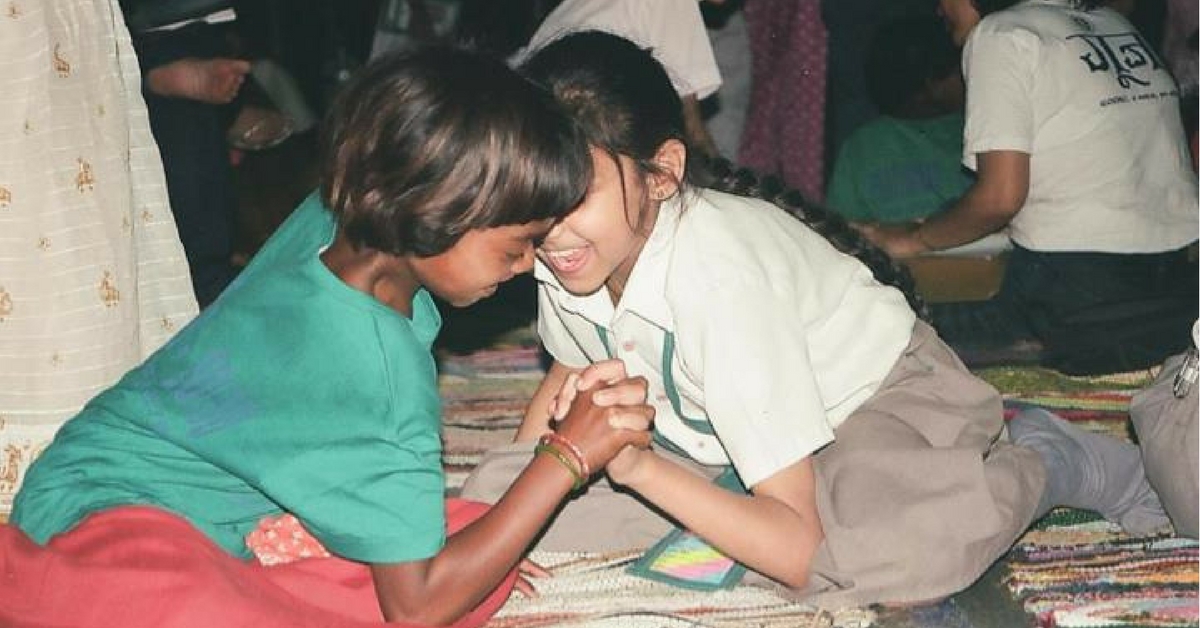
Involving urban school children in the process of helping their underprivileged counterparts can lead to some truly amazing experiences. Goonj’s School to School initiative is helping drive such instances of social responsibility and development.
What is education all about? To make our children understand life. As someone said, “Tell me and I’ll forget, show me and I may remember, involve me and I’ll understand.” This is a simple narration of some simple ways kids are getting involved to understand the challenges of the world they are going to inherit. With the new academic session starting up, this story shows how Goonj’s work with school material is a huge learning experience for the recipient village children, and maybe more so for the contributing city school children.
Gaps in village schools are obvious—missing toilets and libraries, and absence of basic school material. But given the abundance of these in urban schools, are children therefore becoming more responsible, sensitized, and aware citizens?

In the last many years, Goonj has engaged children from hundreds of city schools under its School to School (S2S) initiative. In the process, these kids also learn some important life lessons around compassion, empathy, and the joy of giving.
The most important one, of course, is about taking action for change.
Many years ago, when we first talked about S2S at a school assembly of DAV Public School, Sector-37, Faridabad, the excitement among the children and teachers alike was memorable. For us, the best memory is of the disbelief among children, and the laughter about the fact that small things like water bottles can become a key point in deciding whether one should go to school or not.
Goonj’s teams have since done numerous sessions all over the country, but the enthusiasm during these sessions is still the same. Kids have started understanding that if you have to walk for 3 kms. one way, and then come back after a few hours to schools where there is no proper water facility, going to school without a water bottle is an issue!
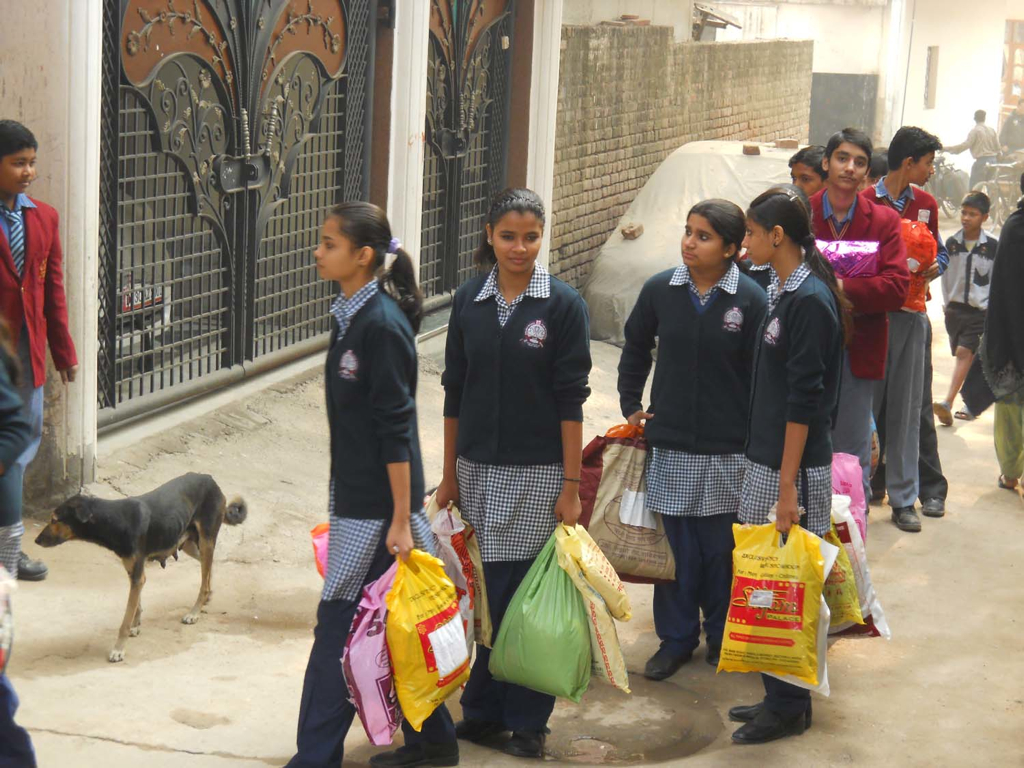
The children’s response, and their urge to do something, is infectious now. So what happens at these sessions? Goonj’s team members talk about the lives and challenges of the students’ counterparts in far-flung villages of India, something they know little about. The students realize a bit about what they have to, and can, do to bring about a change. This makes them reflect about their own lives differently. Soon enough, this reflection makes way for action, when they ask us how they can help their friends.
We talk about children who are talented, have dreams just like them, and who struggle to study despite difficulties, even though don’t have the same opportunities and resources.
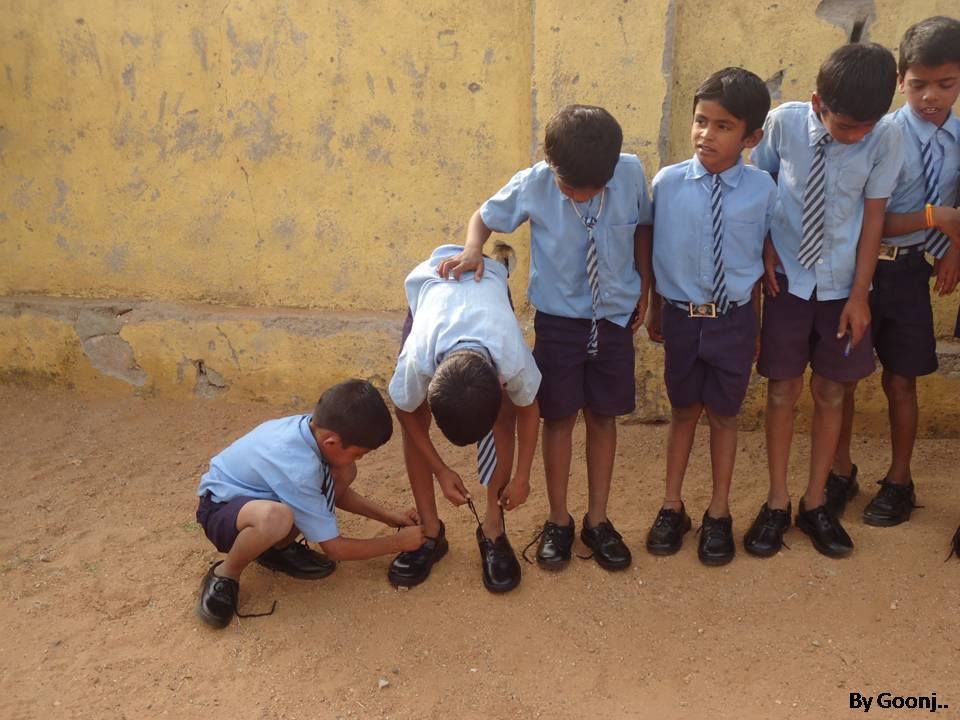
The aim is simple—to sensitize and make the little ones aware about the world they don’t see, but that exists all the same. With simple ideas, Goonj makes them realize the value of things that they take for granted. After the session, when asked what they would like to share, apart from their things, many talk about knowledge, values, good habits, etc. These sessions usually also mark the start of a relationship between Goonj and the school, led by its teachers and principal.
Many schools nurture this relationship beautifully, involving their children to generate disaster relief material, offering pro bono space, and actively organizing many campaigns to sustain learning.
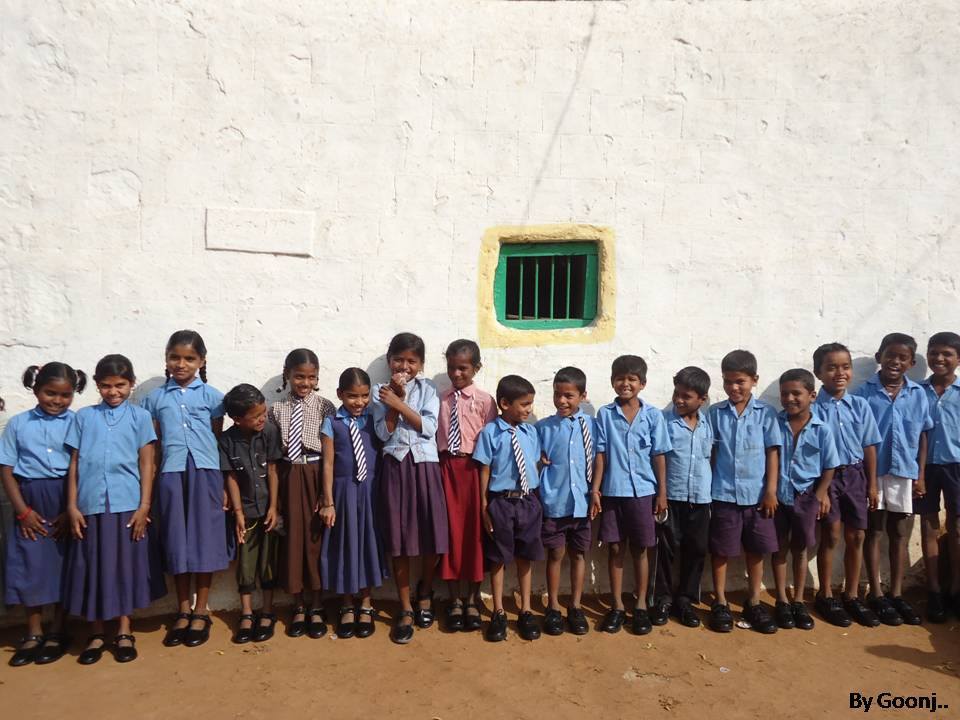
Hundreds of students visit the Goonj Processing Centre. It is a learning ground for valuing the abundant school material they have. Here, children see how everything—from clothes to books, shoes, medicines, utensils, and even stapler pins—is sorted and reused. They effortlessly grasp the idea of optimum utilization being a prerequisite to recycling.
The sense of wonder and awe in their eyes is a joy to watch. They see how the smallest thing is treated with utmost care. This makes them look at material as an important resource, especially for education. They go away re-thinking about things they usually consider a waste and how, just by putting some effort and thought, their things can actually be transformed for another’s use. They get an insight into the small but critical challenges their rural counterparts face, and understand how they can make a difference.
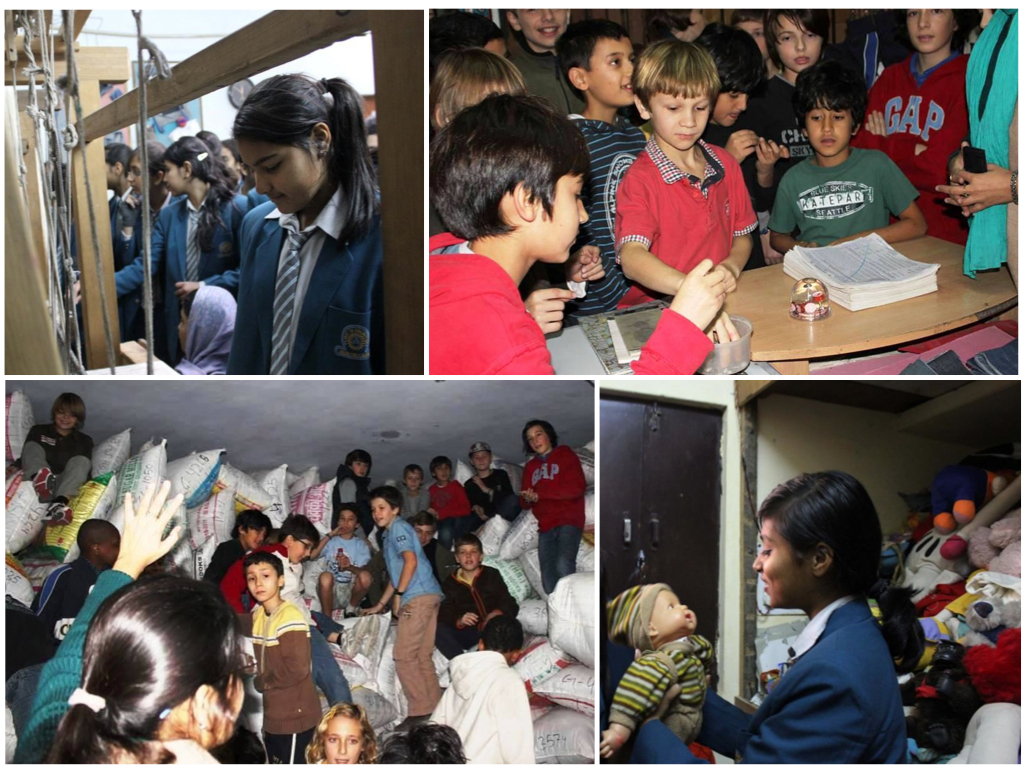
While more schools are making a visit to the Goonj Processing Centre a part of their curriculum for senior grades, it’s interesting to see many kids in lower grades eager to visit. At the Processing Centre, there is never a dull moment engaging with the kids. One of the most enduring images is of kids who have already visited the centre with their school walk in again with their parents, enthusiastically telling them about the process in bits and pieces. In many instances, teachers who brought their school children for the visit come back again with their own children to make sure they didn’t miss on the learning.
For us, these are the real barometers of the impact of our work.
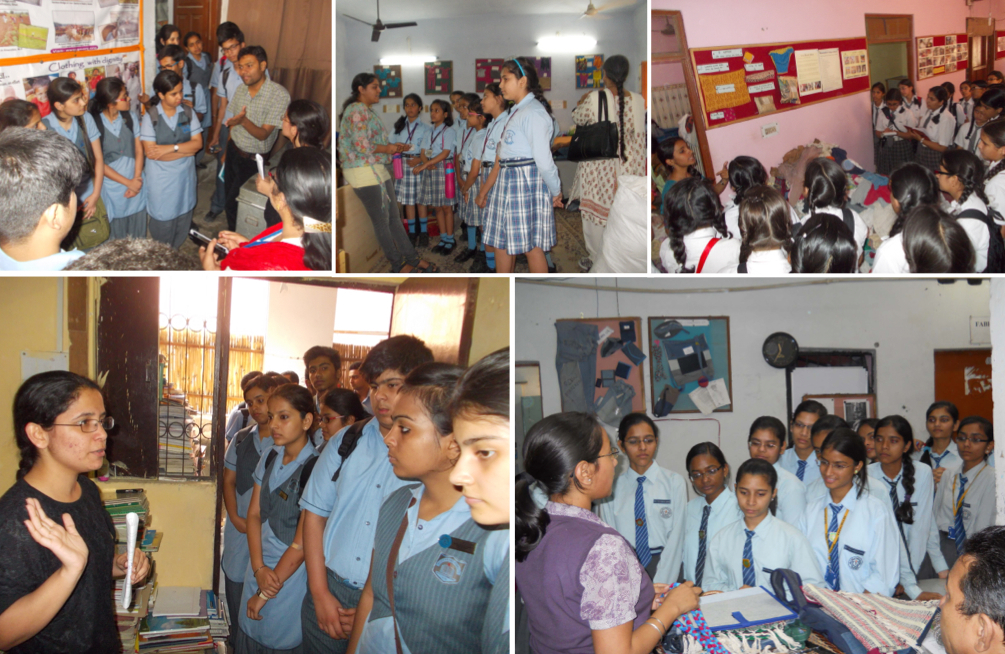
Of course, it wouldn’t be possible without some awesome teachers who have taken personal interest and initiative over the years to bring hundreds of students to visit Goonj. A school teacher who retired from her post called in to say that we shouldn’t forget her. A week later, she was at Goonj, introducing the new coordinating teacher. These, and many other teachers, are a fine example of the fact that Goonj’s relation with schools is not limited to giving and taking of material.
There are hundreds of such stories—right from installing permanent boxes for collecting material to developing an absolutely new culture of giving and sharing. For example, a school started a beautiful tradition that whenever a student celebrated his/her birthday at school, they would be encouraged to contribute a gift for their rural counterparts through Goonj.
They were taught that a Birthday is not only for taking, but is for giving too!

Many schools make sure that every year, during the orientation ceremony, and introductions to the parents and the children, they talk about their connection with Goonj, School to School and its value system, or how it brings change in the thought processes of the kids.
Regular collection campaigns are organized by many schools, but there are some where even the principal and teachers play an important role by reaching out to parents through personal messaging. The info is posted on WhatsApp groups—not about the collection drive, but about how their small effort can make a big difference.
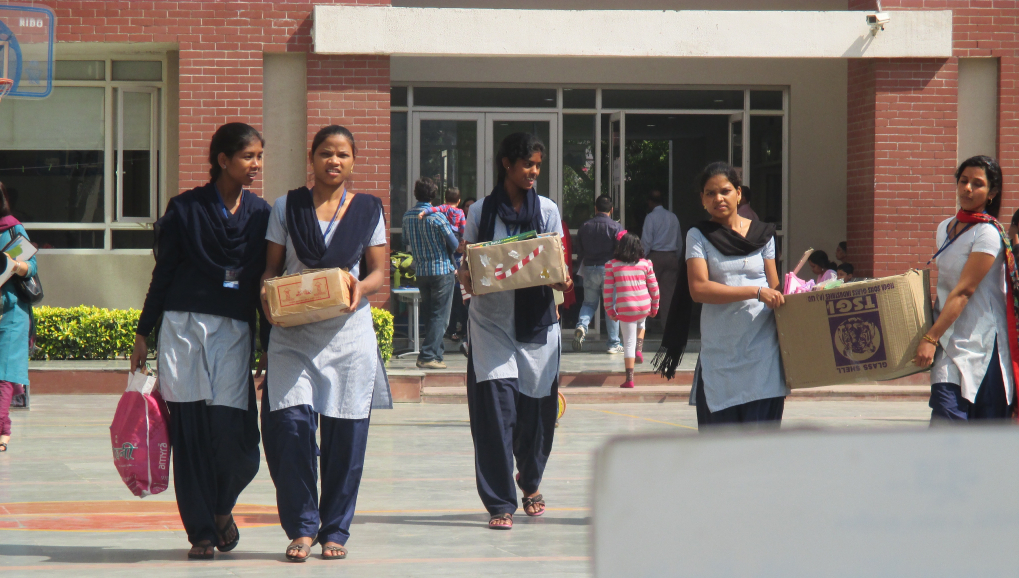
There are schools that have gone beyond the general collection of clothes and material during disasters. Some schools participate in Goonj’s various campaigns like ‘Joy of Giving Week’ (now called Daan Utsav) and annual winter campaign for woolens ‘Odha Do Zindagi’ in a big way. Some have even opened their campus to the general public for contributions and offered space as Goonj dropping centers. Kids in other countries have also made efforts to do their bit after learning about the realities of their counterparts in rural India.
Many make sure to organize regular money collection drives even in non-disaster periods, as they do understand that although School to School stories are emotional, implementation is hardcore logistics.
One of Goonj’s most successful campaigns with children for disaster relief work, ‘1 kg. rice +1 kg. chana’, was a lesson we all can learn from our children. After disasters, many schools took it up, and while each child contributed a kg., altogether, it resulted in generating truckloads of rice and chana (green peas).
This also highlights that when children engage in activities, taking a lead in the process of change, it gives them a valuable firsthand experience of taking action.
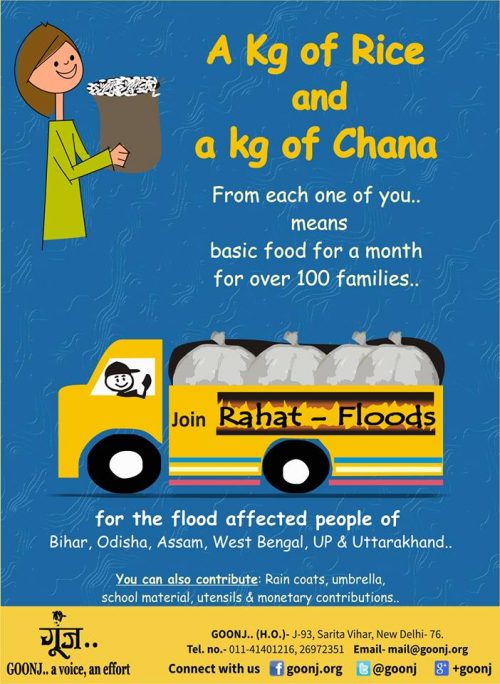
They say children are like soft clay. They mould in any way we shape them. Now, it’s our responsibility to open up their minds and hearts to the world around them. Whether you are a parent or a teacher, bring your children for a visit to the nearest Goonj Processing Unit. We eagerly look forward to meeting the makers of our world’s future.
Wish to give a new meaning to the used stationery, school bags, uniforms, and tiffins from your kid/s’ old session? Drop them off with Goonj. You can also join Goonj’s recent campaign, ‘100,000 Acts of Giving’, to contribute school packs. For more on this, click the banner below.
Like this story? Or have something to share? Write to us: [email protected], or connect with us on Facebook and Twitter.
NEW: Click here to get positive news on WhatsApp!
If you found our stories insightful, informative, or even just enjoyable, we invite you to consider making a voluntary payment to support the work we do at The Better India. Your contribution helps us continue producing quality content that educates, inspires, and drives positive change.
Choose one of the payment options below for your contribution-
By paying for the stories you value, you directly contribute to sustaining our efforts focused on making a difference in the world. Together, let’s ensure that impactful stories continue to be told and shared, enriching lives and communities alike.
Thank you for your support. Here are some frequently asked questions you might find helpful to know why you are contributing?


This story made me
-
97
-
121
-
89
-
167



